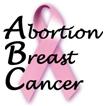Experts Argue in Lancet Oncology Whether to Inform Women About Risk
An international women’s group today severely criticized a British physician for arguing in the journal, Lancet Oncology, that women should not be informed about a risk associated with an optional surgical procedure, although medical experts universally agree that it raises a woman’s lifetime risk of breast cancer in at least one of two ways. 1
Tim Davidson, a physician associated with London’s Royal Free Hospital, argued in a December, 2001 Lancet Oncology article that women contemplating an abortion should be denied informed consent. Medical experts do not dispute that abortion causes breast cancer through postponement of first full term pregnancy. While conceding that pregnancy, early first full term pregnancy and larger families confer increased protection against the disease and that childlessness and late age at first birth increase risk, Dr. Davidson nevertheless opined that women should be kept in the dark about the increased risk.
Sixteen of 17 statistically significant studies report that abortion increases risk of breast cancer. A complete list of the studies can be found at www.AbortionBreastCancer.com.
Davidson’s article was written to diminish the significance of an earlier statistical study published by Patrick Carroll of the Pension and Population Research Institute, based in London, which reported that British women procuring abortions double their risks for the disease. Carroll’s study used statistical records of abortions and cancer rates. Any possibility of recall bias is, therefore, completely ruled out. 2
Angela Lanfranchi, MD, FACS, a New Jersey breast cancer surgeon, responded to the Davidson article in an April issue of the medical journal in which she argued in support of informing patients of the risk. She said, “In my experience, patients who are pregnant also have no trouble understanding the biological basis of the contrary effects of abortion versus full-term pregnancy....As a woman, I am annoyed by Dr. Davidson’s paternalistic attitude.” She reminded the journal’s readers of the story of Ignaz Semmelweis, a Hungarian physician, who demonstrated in the 1840s that deaths from childbed fever could be prevented if only doctors would wash their hands before caring for their patients. Semmelweis was persecuted by his colleagues because he offered advice which went against prevailing medical wisdom. He was ridiculed until the 1870’s when germ theory was recognized by physicians. 3
Mrs. Karen Malec, president of the Coalition on Abortion/Breast Cancer, said,
“It just floors me that medical experts are actually debating in a medical journal whether or not women should be informed of an agreed upon risk! The incidence of breast cancer has climbed 40% in the United States since abortion was legalized. It is the greatest cause of death among British women between ages 30 and 50. Yet Davidson had the gall to suggest that women contemplating an abortion should not be informed about this means of risk reduction.”
In this month’s issue of Lancet Oncology, Joel Brind of Baruch College of the City University of New York and his colleague, Vernon Chinchilli of Pennsylvania State College of Medicine, both of whom authored a 1996 comprehensive review and meta-analysis of the research, offered arguments in favor of informed consent and in support of a causal relationship between abortion and breast cancer. 4 5 A graph showing how abortion and breast cancer rates paralleled one another in Denmark during a 50 year period in the 20th Century. It appeared in stark contrast to the severely flawed 1997 Melbye study conducted in Denmark which found no overall increased risk. 6
Brind and Chinchilli noted in their letter that Davidson relied on the Tang et al. 2000 study to support his argument that recall bias is a problem in retrospective (interview based) studies. 7 Recall bias is a theory which suggests that these studies are faulty because breast cancer patients allegedly are more likely to admit to having had abortions than are healthy women; yet Tang et al. really reported that no evidence of bias could be found. While Davidson also cites a Swedish study to support this theory, the truth is that no researchers presently claim to have found plausible evidence of this phenomenon. 8 Even the Swedes, the original proponents of this theory, backed off their claim of having found such evidence several years ago. 9
Mrs. Malec asked, “Davidson’s refusal to inform patients about a recognized risk, reveals a strong bias against an abortion-breast cancer link. Why should we believe him, then, when he suggests there is ‘insufficient data to justify warning women’? Why believe him when he’s misrepresented the findings from Tang et al. 2000?”
Patrick Carroll participated in the debate in this month’s issue of Lancet Oncology as well. He said that his study
“...shows that induced abortion was the most important risk factor (for) breast cancer in both British and Swedish women older than 45 years.” 10
He added that Melbye et al. 1997 and Goldacre et al. 2001 were flawed because large numbers of women who’d had abortions were misclassified as not having had abortions. 11
The Coalition on Abortion/Breast Cancer is an international women’s organization founded to protect the health and save the lives of women by educating and providing information on abortion as a risk factor for breast cancer.
- 1. Davidson, Lancet Oncology (Dec., 2001) Vol. 2, p. 756-58.
- 2. Carroll, “Abortion and Other Pregnancy Related Risk Factors in Female Breast Cancer,” Pension and Population Research Institute, London, 2001.
- 3. Lanfranchi, Lancet Oncology (April, 2002) Vol. 2.
- 4. Brind and Chinchilli, Lancet Oncology (May, 2002) Vol. 3, p. 266-67.
- 5. Brind et al. J Epidemiol Community Health (1996) 50:481-96.
- 6. Melbye et al. NEJM (1997) 336:81-85.
- 7. Tang et al. Am J Epidemiol (2000) 151: 1139-43.
- 8. Lindefors-Harris et al., Am J Epidemiolol (1991) 134:1003-08.
- 9. Meirik et al. (1998) J Epidemiol Community Health 52:209.
- 10. Carroll, Lancet Oncology, (May, 2002) Vol. 3, p. 267.
- 11. Goldacre et al. J Epidemiol Community Health (2001) 55:336-37.

